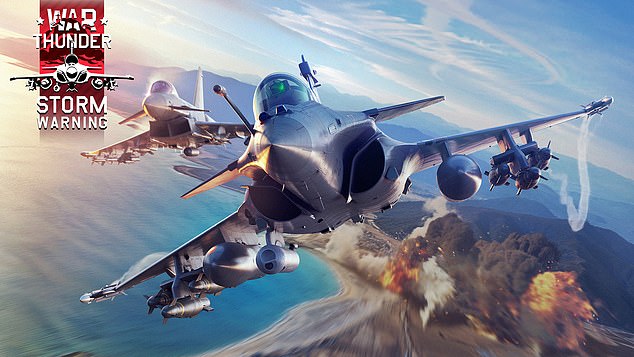Military Personnel Warned Over Leaking Secrets in Online War Games
The intersection of gaming and national security has become a growing concern, as military personnel are now being reminded of the serious consequences of sharing classified information in online platforms. recently, it has come to light that sensitive military details have been leaked at least twice by service members in online gaming forums. These incidents have prompted the Ministry of Defence (MoD) to issue stark warnings to military personnel, cautioning them that such breaches could lead to court-martial and even imprisonment. The issue has also sparked broader discussions about the risks of mixing gaming communities with sensitive military information.
One of the most alarming cases occurred last month when a gamer discussing the Eurofighter Typhoon’s advanced radar system, known as the Captor radar, inadvertently leaked classified information on the popular online game platform War Thunder. The user, who was later suspended, had shared details about the radar’s scanning capabilities, which are considered among the most sophisticated in the world. The incident highlighted how seemingly innocuous discussions in gaming forums can have real-world implications for national security. Forum managers were quick to address the issue, reminding users of their responsibilities and urging them to avoid sharing any information unless they are absolutely certain it is declassified and safe for public use.
War Thunder, a free-to-play combat simulation game released in 2012 by Gaijin Entertainment, has become a hotspot for such leaks. The platform, which allows players to simulate historical and modern military scenarios, has a global user base and is known for its attention to detail. However, this level of realism has also made it a target for individuals seeking to share or extract sensitive information. In 2021, another incident occurred when a user, identifying himself as a "Challenger 2 Commander," posted classified documents related to the Challenger 2 tank in an effort to improve the game’s accuracy. These breaches have raised red flags within the military and intelligence communities.
The MoD has made it clear that it takes such unauthorized disclosures extremely seriously. In a statement, the department emphasized that any potential breaches of secrecy are thoroughly investigated, with penalties for those found responsible ranging from disciplinary action to prosecution. The gravity of the situation was underscored by Defence Minister Luke Pollard, who addressed the issue in Parliament. He stressed that the unauthorized release of information not only endangers national security but also undermines the core values and policies of the MoD. Pollard made it clear that such behavior will not be tolerated, as it compromises the safety and security of the United Kingdom.
The problem, however, is not limited to overzealous gamers or naive individuals seeking to enhance their gaming experience. According to Colonel Philip Ingram, a former military intelligence officer, these leaks are sometimes the result of more sinister activities. Ingram warned that classified material being shared on realistic gaming sites is becoming an increasingly common phenomenon. He explained that individuals who leak such information may either be naive and seeking to boast or, more concerningly, be targets of foreign espionage. Hostile intelligence agencies, Ingram suggested, may groom unsuspecting individuals to extract sensitive information, exploiting their desire to contribute to online communities.
The issue has sparked calls for greater vigilance and education within the military and gaming communities. Ingram hopes that the MoD will take proactive steps to address this growing threat, as the line between virtual gaming and real-world security continues to blur. For now, military personnel are being reminded of the potential consequences of their actions, both online and offline. As gaming platforms like War Thunder continue to attract millions of players worldwide, the challenge of balancing realism with security will remain a critical issue for governments and gamers alike.









